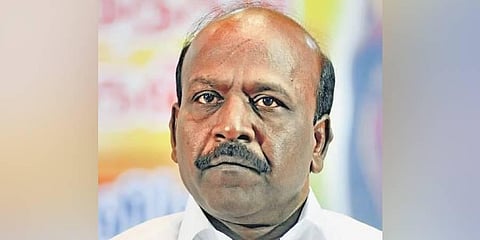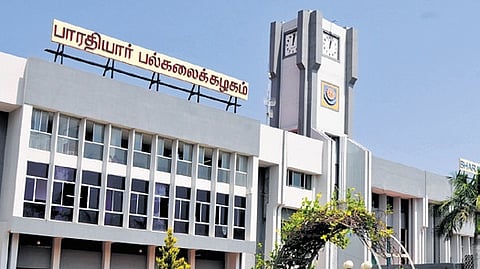‘UGC will debar univs that are found violating PhD quality standards’ TALKING TO TOI
The University Grants Commission (UGC) is rolling out reforms in higher education including four-year UG degrees, an academic bank of credits and degrees with multiple entries and exits based on the National Education Policy (NEP). But some states including Tamil Nadu have not yet accepted NEP and are in the process of formulating their own State Education Policy (SEP). In an interview with A Ragu Raman, UGC chairman M Jagadesh Kumar discusses issues such as opposition to NEP, lack of funding to universities and the tussle between the Tamil Nadu govt and Governor on including UGC nominees in vice-chancellor (V-C) search committees.
Excerpts: Tamil Nadu is undecided about adopting UGC reforms based on NEP, especially since it is drafting an SEP. Can states opt out of certain NEP provisions?
We are taking a collaborative approach to NEP implementation. For example, four-year UG programmes are optional and flexible. All states are expected to adopt UGC reforms because if they do not, students will suffer.
UGC previously funded universities, including new faculty positions. The lack of such support is blamed for financial crises in state universities. Is there a proposal to support struggling state universities?
The primary objective of the UGC is to coordinate, determine and maintain standards in higher education. Until 2017, when the 12th Plan ended, UGC provided funding under various schemes. However, with the discontinuation of five-year plans and the establishment of Niti Aayog, most of these schemes were closed. We are reimbursing schemes initiated before 2017. State govts are responsible for salaries, pensions and infrastructure of state universities. For research infrastructure, central schemes under the National Research Foundation (NRF) are now in place. State universities need to collaborate with industry to generate funds as higher educational institutions flourish on multiple funding sources rather than relying solely on govt support. We are encouraging universities to work in this direction.
Will UGC intervene to resolve the Governor-Tamil Nadu govt conflict over including UGC nominees in V-C search committees?
Due to this, many state universities have been functioning without V-Cs. A case is pending in the Supreme Court. Timely appointment of V-Cs is in the best interest of universities. There are some challenges and how they will be resolved is the responsibility of the state govt. UGC believes in the importance of appointing institutional heads without delay, as leadership plays an important role in making sure academic schedules are followed, admissions are done on time, a research ecosystem is maintained, and faculty appointments happen without delay. These processes are disrupted if there are delays in appointing heads of universities. UGC has requested state govts to prioritise this.
Tamil Nadu’s state universities face a huge faculty shortage, with no recruitment in 10 years. The University of Madras operates with just a third of its faculty, and is facing a survival crisis. Faculty positions have already been sanctioned by the respective state govts. If these positions are not filled, how can universities ensure quality teaching, start new academic programmes, or strengthen their research profile?
We all aspire for our universities to be recognised globally and contribute to the social well-being of our country. This is possible only when universities have a head of the institution, regular faculty members and the ability to raise resources through various means. Strengthening universities should be a top priority for any state govt.
How many foreign universities have expressed interest in establishing campuses in India?
We have received many applications. Several universities in the UK and Australia have shown interest in establishing their campuses here. The University of Southampton has established its campus in Delhi. In the coming years, I expect several more to materialise.
How will UGC improve quality of PhDs? Is plagiarism still a big concern?
Plagiarism is one of the concerns. How students are admitted, whether universities are following PhD regulations by conducting entrance exams and interviews, how student progress is monitored, and whether scholars are encouraged to publish in highquality journals or develop products — these are issues that affect the quality of PhDs. It has come to our notice that some universities are not adhering to these standards and awarding PhDs with short durations and for substandard work. We have formed expert committees to identify such universities and examine their cases. If we find they have violated UGC’s PhD regulations, we will debar them from offering PhD programmes.
UGC has set a deadline of Dec 31 for creating an academic bank of credits (digital platform that allows students to store, transfer and redeem credits across institutions). What is the progress?
The process is progressing rapidly. Some institutions have completed student onboarding, while others have reached up to 70%. All institutions must generate a unique ID for the academic bank of credits, upload marksheets and other certificates, and link them to the unique ID by Dec 31. This will provide students with access to digital transcripts, so they won’t need to carry original certificates. Email your feedback to southpole.toi@ timesofindia.com
.jpg)





































.jpeg)











